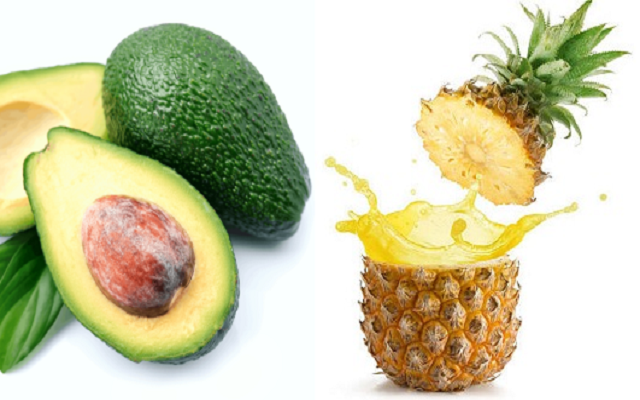Fruits are delicious as well as nutritious. They are high in fiber, vitamins, and antioxidants, all of which help to maintain the body in good shape. Fruit, on the other hand, is a source of sugars, so many people who try to reduce their carbohydrate consumption exclude fruits from their diet.
This unfavorable image has been exacerbated by the fact that fructose is one of the factors linked to an increased risk of heart disease and obesity. However, we must keep in mind that many of these studies have focused on the harmful consequences of high fructose levels found in soda beverages and other junk food. Natural sugars in meals do not have the same detrimental impact as added fructose in fast food and desserts.
Still, if you want to keep your sugar intake under control, it's best to select fruits with the lowest sugar content. By learning this knowledge, you will be able to take advantage of all of their health benefits while also meeting your macro and micro nutritional requirements.
ADD THESE 5 LOW-SUGAR FRUITS TO YOUR DIET:
OLIVES ARE (0 GRAMS OF SUGAR PER 100 GRAMS)
Olives are fruits, in case you didn't know. Olives, like cherries and apricots, are a fruit produced by a plant's flower, in this instance the olive tree blossom.
These little fruits are chock-full of antioxidants. Antioxidants are our first line of defense in the fight against diseases because of their ability to absorb cell-damaging free radicals. They also hasten the recovery process after a strenuous workout.
AVOCADO (vegetable) (2 GRAMS OF SUGAR PER PIECE)
Avocado, like the last example, may have never occurred to you that it is a fruit. It is, nevertheless, according to botanic categorization, and contains extremely few sugars. Despite the lack of carbohydrates, it has a healthy amount of monounsaturated fats, satiating fiber, and a wide range of vitamins and minerals.
Furthermore, some studies have shown that eating avocado alongside other meals like carrots and tomatoes increases beta-carotene absorption, hence increasing vitamin A levels in the body. The A vitamin is necessary for proper cell formation, immunity, and vision improvement.
CRANBERRY FRUIT (4 GRAMS OF SUGAR PER 100 GRAMS)
Cranberries should be consumed all year, not only during the holiday season. This fruit is high in antioxidants, in addition to having a low sugar level.
According to a study published in the Journal of Nutrition, drinking low-calorie cranberry juice without sugar additives on a regular basis can help reduce the risk of heart disease, improve insulin resistance, normalize blood pressure, balance triglyceride levels, and prevent inflammatory processes.
Their high vitamin C and fiber content are two other nutritional benefits worth highlighting.
STRAWBERRIES (5 G. SUGARS PER 123 GRAMS)
When compared to other berries, raspberries have the lowest sugar concentration. That's why, if you're used to creating shakes, it's always a good idea to keep them fresh or frozen in your fridge. They also offer the highest fiber content (8 grams) among the berries, which minimizes the risk of blood sugar spikes and declines.
Fiber not only makes you feel full with less calories consumed, but it also appears to boost the makeup of beneficial gut flora, according to several recent research. When bad bacteria take over in the gut, they create an environment that is conducive to the emergence of new diseases, potentially raising the risk of cardiovascular disease, type 2 diabetes, and obesity. A high-fiber diet can aid in the survival of beneficial bacteria. Strawberries and blueberries also fall into the low-sugar category.
NEW ZEALAND (7 G. SUGAR PER KIWI)
Although these hairy balls were originally thought to be exotic and difficult to get by, they are now routinely available. In addition to having a low sugar content, it is also high in vitamin C, which can practically save your life, so don't wait to incorporate it into your diet. According to a study published in the American Journal of Clinical Nutrition, a high intake of vitamin C from fruits can lower the risk of coronary artery disease and extend life.
Before going to bed, it's also a good idea to eat some low-sugar fruits. According to a study published in the Asia Pacific Journal of Clinical Nutrition, eating two kiwis before bedtime will help you sleep better. This is critical, given that post-workout recuperation occurs while we sleep.


Commentaires
Enregistrer un commentaire